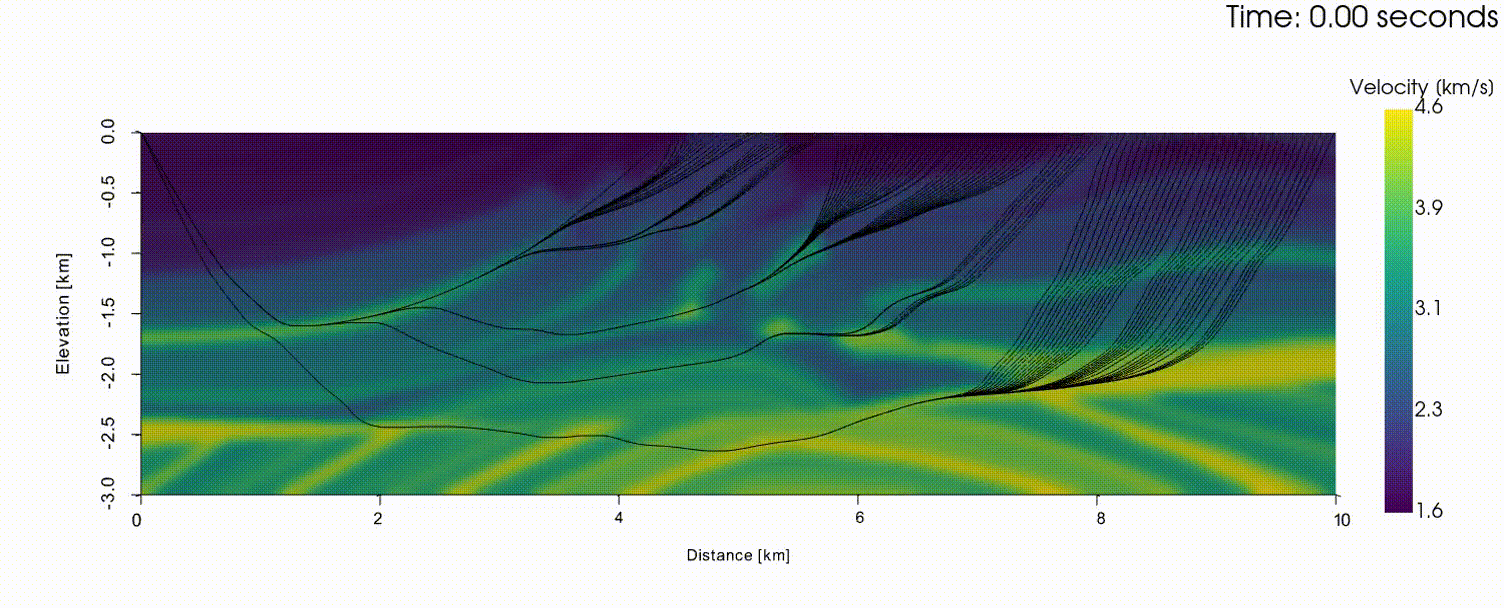fteikpy is a Python library that computes accurate first arrival traveltimes in 2D and 3D heterogeneous isotropic velocity models. The algorithm handles properly the curvature of wavefronts close to the source which can be placed without any problem between grid points.
The code is based on FTeik implemented in Python and compiled just-in-time with numba.
Forward modeling:
- Compute traveltimes in 2D and 3D Cartesian grids with the possibility to use a different grid spacing in Z, X and Y directions,
- Compute traveltime gradients at runtime or a posteriori,
- A posteriori 2D and 3D ray-tracing.
Parallel:
- Traveltime grids are seemlessly computed in parallel for different sources,
- Raypaths from a given source to different locations are also evaluated in parallel.
The recommended way to install fteikpy and all its dependencies is through the Python Package Index:
pip install fteikpy --userOtherwise, clone and extract the package, then run from the package location:
pip install . --userTo test the integrity of the installed package, check out this repository and run:
pytestRefer to the online documentation for detailed description of the API and examples.
Alternatively, the documentation can be built using Sphinx:
pip install -r doc/requirements.txt
sphinx-build -b html doc/source doc/buildThe following example computes the traveltime grid in a 3D homogeneous velocity model:
import numpy as np
from fteikpy import Eikonal3D
# Velocity model
velocity_model = np.ones((8, 8, 8))
dz, dx, dy = 1.0, 1.0, 1.0
# Solve Eikonal at source
eik = Eikonal3D(velocity_model, gridsize=(dz, dx, dy))
tt = eik.solve((0.0, 0.0, 0.0))
# Get traveltime at specific grid point
t1 = tt[0, 1, 2]
# Or get traveltime at any point in the grid
t2 = tt(np.random.rand(3) * 7.0)Please refer to the Contributing Guidelines to see how you can help. This project is released with a Code of Conduct which you agree to abide by when contributing.









